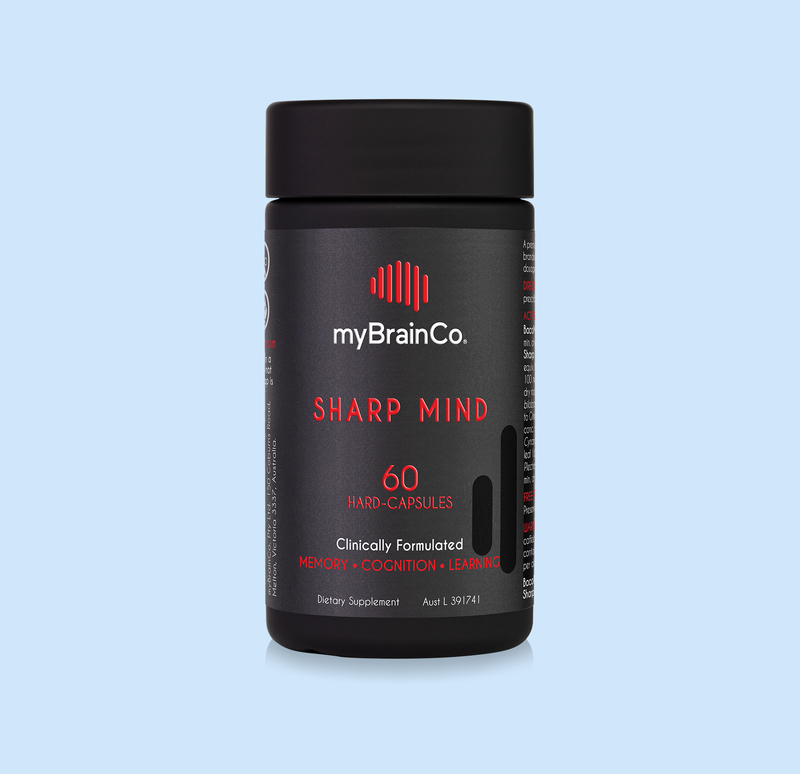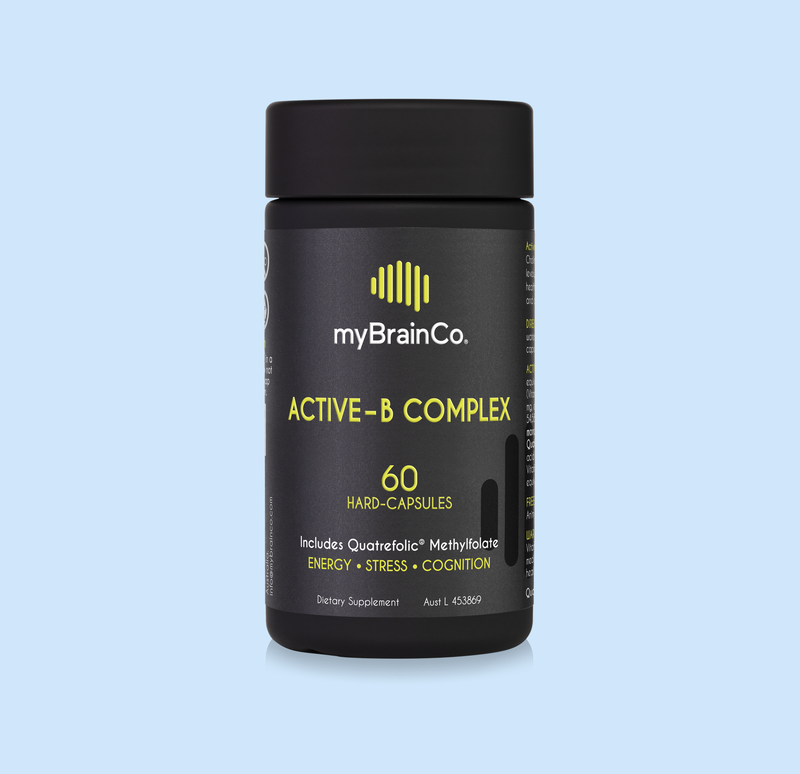Stress is a normal human emotion that can offer both benefit and destruction. By understanding what stress is and how to identify the signs and symptoms, we’re better able to exercise control over it and improve our physical and mental resilience.
What is stress?
Whether it’s the night before a race or the first day of a new job, feeling temporarily stressed is a common occurrence for most people … and it can be positive. Known as eustress, positive stress keeps us alert, energised and ready to perform at our best.
But numbers released by the Australian Bureau of Statistics show that Australians are stressing now more than ever, and when stress becomes chronic, it can lead to a condition called distress, which has far-reaching physical and psychological implications.
75% of Australians say that stress in their lives adversely affected their physical health, while 64% said it affected their mental health.[1]
These statistics are similarly shared by many other countries around the world.
What are the warning signs of stress?
Long-term or ‘chronic’ stress can decrease our ability to function normally and may manifest itself through a variety of symptoms. Identifying the symptoms of stress may help you mitigate and manage stress as it arises.
-
Physical Signs of Stress
- Headaches
- Digestive discomfort
- Increase in or loss of appetite
- Tension in neck, jaw and shoulders
- Difficulty sleeping
- Racing heart
- Elevated blood pressure.
-
Emotional Signs of Stress
- Depression
- Anxiety
- Panic attacks.
-
Cognitive Signs of Stress
- Overthinking
- Difficulty focusing
- Forgetfulness
Stress relief tips
With this in mind, learning some stress relief techniques is important to help you avoid its detrimental health impacts. Here are 6 considerations to help you relieve stress and improve your resilience.
Exercise
Exercise offers natural stress relief by producing changes in the parts of the brain that regulate stress and anxiety. Regular aerobic exercise is associated with lower sympathetic nervous system and hypothalamic-pituitary-adrenal (HPA) axis reactivity.[2]
And that positive feeling you get after that run or hard workout? That’s due to the increase in the production of endorphins, which are known to help produce positive feelings and reduce the perception of pain.[3]
Exercise can increase brain sensitivity for the neurotransmitter serotonin and norepinephrine, which can help relieve feelings of depression.[3] It can also help you become more aware of your mental state and provide a welcome distraction from worry and fears.[3] Being physically active promotes a focus on your body, rather than your mind.
No matter the intensity of your workout, whether it’s walking, swimming, dancing or pilates, your mood will still benefit from physical activity. The key is to find activities you enjoy and make them routine.
Mindfulness
Mindfulness is the practice of being in the present moment. Practices include breathing techniques, meditation and yoga, all evidence-backed to help alleviate stress and the symptoms associated with depression and anxiety.[4]
A recent study in college students showed that mindfulness practice can improve self-esteem, helping to reduce the symptoms of anxiety and depression.[5]
There are numerous low to no-cost and time-flexible mindfulness practices to help reduce your stress and anxiety levels. These include:
Meditation
Find a comfortable space and focus on your breathing. The idea is to keep your mind centred on the present moment, without wandering back to your concerns or worrying about the future. Being able to stay in the present is a discipline, but supports relief from anxiety and agitation.
There are many guided meditation apps and recordings on YouTube to help teach you the art of meditation.
Body Recognition
Find a quiet space, focus your breath, then tense a muscle group for about five seconds and relax for 30 seconds. Repeat before moving to the next muscle group, moving through your entire body. Much like meditation, this process can help focus your mind on the present and offer relief from anxiety and stress.
Controlled Breathing
Probably the most simple and effective mindfulness practice, controlled breathing is a free skill that you can practice anywhere and at any time. Your focus should be on an extended exhalation period, which stimulates your parasympathetic nervous system, the opposing force to your anxious fight or flight response.
Yoga
Ancient arts such as Yoga, Tai Chi, and Qigong help ease the mind through rhythmic breathing in conjunction with flowing movements.
Supplements
Specialised supplements can be effective stress-targeting additions to a healthy diet and lifestyle.
Herbs known as adaptogens possess properties that can help support your body’s natural ability to deal with stress (physical, mental or chemical), by modifying the stress response on a cellular and organ-systems level. As the name suggests, this promotes adaptation and resistance. Adaptogens often work through the regulation of the hypothalamus-pituitary-adrenal axis (HPA axis), your central stress response system.
In addition to herbs, certain mushrooms, vitamins and minerals have also been shown to assist with a healthy stress response.
Ashwagandha
Ashwagandha (Withania somnifera) has been used for thousands of years in traditional Indian Ayurveda and is an example of an adaptogenic herb.[6]
Ashwagandha has been clinically shown to enhance the body’s resilience to physical and mental stress.[7] In one study, there was a strong association between supplementing with ashwagandha and greater reductions in stress, anxiety and depression. Ashwagandha has also been linked to a decrease of 23% in morning levels of the stress hormone cortisol.[8]
KSM-66® is the most clinically studied and potent root-extract of Ashwagandha available on the market. A full-spectrum premium extract, KSM-66® is organically produced using a proprietary green chemistry. It has been clinically proven to help reduce stress, lower cortisol levels, relieve mild anxiety and enhance cognitive function.
Magnesium
According to the Office of Dietary Supplements, many people aren’t getting enough magnesium from their diets.[9] This is linked to modern food processing practices, poor dietary choices and age-related factors.
Magnesium is an essential mineral required for over 300 biochemical reactions in your body, including maintaining your nervous system, muscle function, immune function and cardiovascular function.
In addition to these benefits, studies have found that magnesium may be helpful as a natural treatment for anxiety.[10] Magnesium plays an important role in regulating neurotransmitters[11] and may also help with brain functions that reduce stress and anxiety.[12]
Vitamin B
Vitamin B is not a single vitamin but a combination of eight different vitamins known as vitamin B complex, vital for nervous system function, cellular metabolism, energy production and red blood cell production.
A 2014 study by Swinburne University in Australia, linked chronic stress to depleted levels of vitamin B6, while also noting a 20% reduction in work-related stress in those consuming higher levels of B vitamins.[13]
As B vitamins are water-soluble, your body is unable to store them, nor can it produce them naturally, so levels must be replenished daily.
If your diet is inadequate, or your body is leaching vitamins due to medications, lifestyle choices or health concerns, then supplementing with a high-quality vitamin B complex can be crucial to supporting a healthy stress response and overall wellbeing.
Diet
Eating nutrient-dense whole foods will support the stress response by giving the body the building blocks and energy it needs to handle stress.
Types of foods to eat:
- A wide variety of local, organic vegetables and fruit
- Grass-fed meat and organ meat
- Pasture-raised poultry and eggs
- Wild-caught fish and seafood
- Properly-prepared legumes
- Raw nuts and seeds
- Sea vegetables
- Herbs and spices
- Organic virgin coconut and olive oil, grass-fed butter, ghee and lard
- Clean water.
Foods and substances to avoid:
- Sugar
- Artificial sweeteners
- Processed foods
- Seed oils
- Excess alcohol
- Excess caffeine
Although it feels like these foods and substances offer temporary relief, they’ve been shown to bring on additional stress symptoms.
Massage
Treat yourself to a therapeutic massage. Deliberately reserve some time for yourself and get a sugar scrub, a pedicure or take a sauna. Break up your daily routine with an invigorating treatment.
Medication
In some cases, medical intervention might be necessary. There are a wide variety of medications used to help treat stress-related conditions such as antidepressants, benzodiazepines and beta-blockers. These medications have the potential for serious side effects and should only be used as prescribed by your healthcare practitioner.
Takeaway
We need stress to perform at our best, but it must be carefully managed through the implementation of stress relief strategies. It’s all about finding what works for you.



